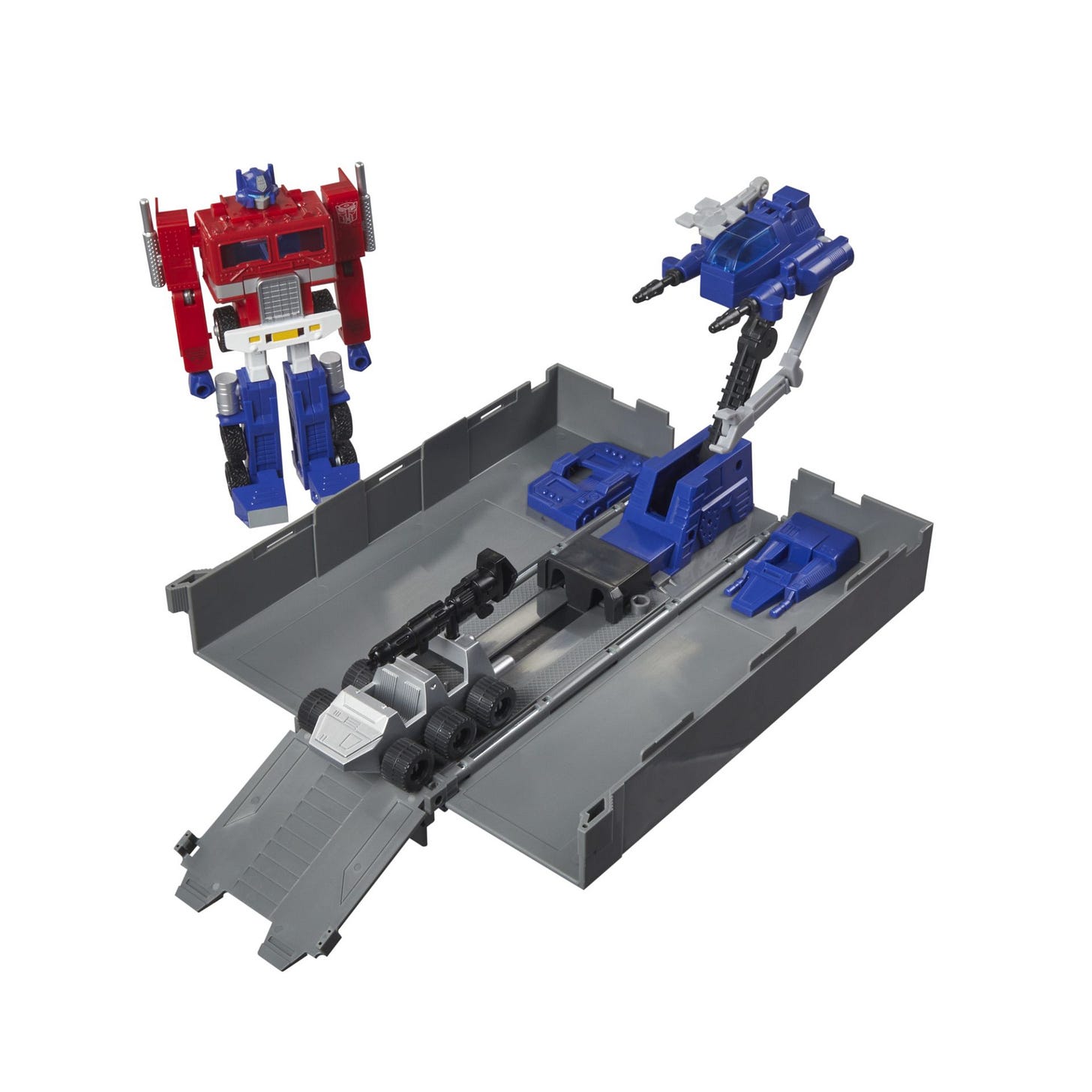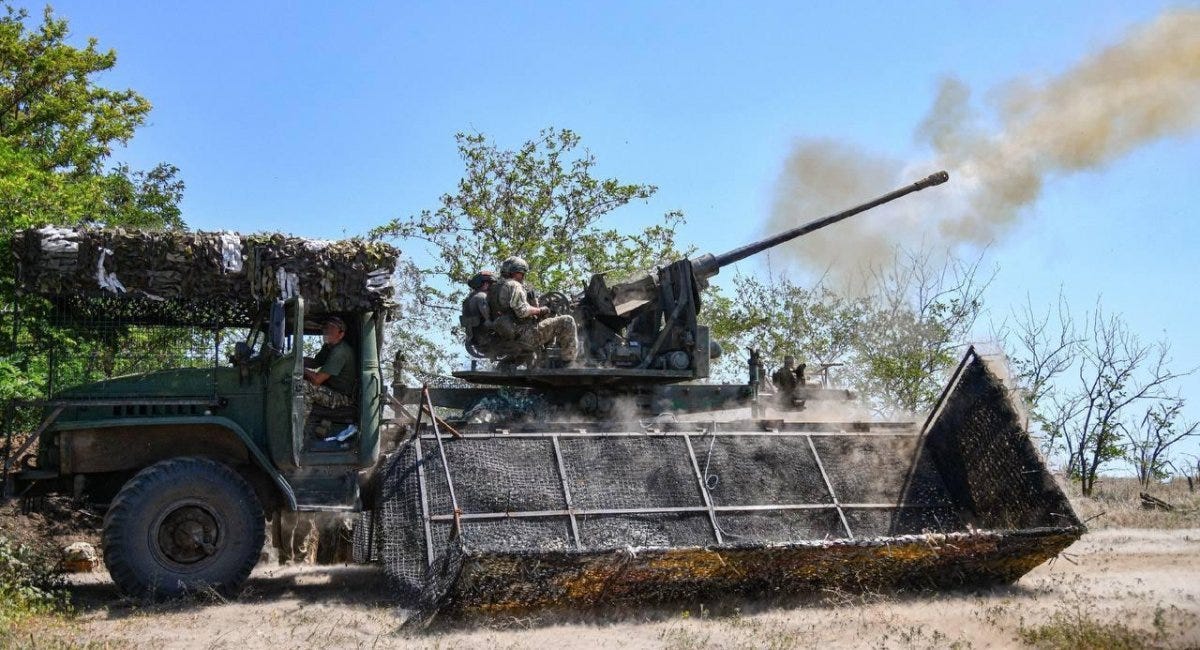Russia’s Convertible Gun Truck and the New Game of Hide-and-Shoot
The Rise of the “Fake Truck” Doctrine
Okay, friends, I saw this monstrosity, and my mind immediately went to my old Transformers Optimus Prime toy from the 1980s.
So is this a case of life imitating art, or is there real value in a convertible gun truck?
Let’s find out…
On the modern battlefield, disguise is no longer just about camouflage nets and green paint. It’s about convincing the eye in the sky that you’re not worth a drone strike.
In Eastern Ukraine, where the hum of first-person-view kamikaze drones is as common as the buzz of mosquitoes in summer, survival often comes down to whether your hardware looks like a threat, or like another delivery truck hauling potatoes.
Russia’s latest field improvisation tells the story. Photos circulating on pro-Kremlin Telegram channels show a Soviet-era S-60 anti-aircraft gun bolted to the back of a civilian truck, complete with a retractable “cope cage” roof that can be raised or lowered depending on whether the crew is driving or firing.
Think of it as Moscow’s version of a convertible, except instead of impressing dates, it’s trying to survive Ukrainian FPV drones.
The system, quickly nicknamed a “gun-truck convertible” by Russian bloggers (how original), has predictably raised eyebrows among Ukrainian analysts and Western observers.
On paper, it’s meant to protect the cannon from drones when on the move. In practice, it looks like something a militia would weld together in a scrapyard. The crew cabin is unarmored, the targeting system is still manual, and when the roof is lowered for firing, the gun is exposed anyway.
It’s a half-solution for a full-spectrum problem.
But under the crude welding, there’s a bigger lesson here: on a battlefield saturated with drones, disguise and deception matter more than armor.
The Rise of the “Fake Truck” Doctrine
The convertible gun truck is part of a growing trend: turning battlefield assets into something that doesn’t look like a target. In an era where quadcopters can identify shapes and thermal profiles, the logic is simple: make your weapon look like something else.
Historically, militaries have always tried to disguise their weapons. In World War II, the British mounted fake tanks made of plywood to confuse German reconnaissance.
In the Gulf War, Iraq tried hiding Scuds inside barns and under highway overpasses.
But Ukraine has elevated the tactic to an art form. From HIMARS launchers disguised as delivery trucks to decoy S-300 systems built from plywood, the rule of thumb is clear: if it looks like a weapon from above, it’s already dead.
Russia, late to the game, is now experimenting with its own improvisations. The convertible gun truck is crude, but it’s a nod to the reality that openly exposed weapons are suicide magnets on this battlefield. If your cannon looks like a cannon, it will be on fire by sundown.
Why the S-60 on a Truck Makes Sense (Sort Of)
The S-60 is a relic of the late 1940s, a 57mm autocannon designed to shred aircraft in an age when pilots wore leather helmets and carried maps on their knees. It was never meant to be bolted onto a delivery truck.
At over 4.5 tons with mount and ammunition, it produces recoil that could destabilize the chassis of a civilian platform.
But desperate times call for desperate welds. Mounted on a truck, the S-60 becomes mobile, capable of shifting positions before Ukrainian drones or artillery can lock in. The retractable roof at least gives the impression of protection while on the move.
And if the crew survives long enough to set up and fire, the 57mm shells can shred low-flying drones or ground targets.





